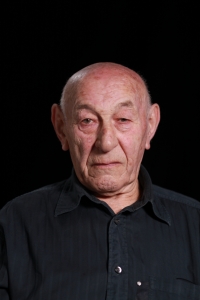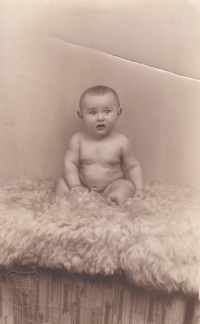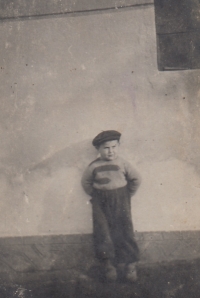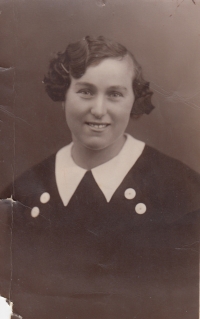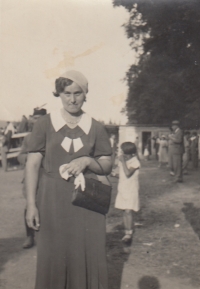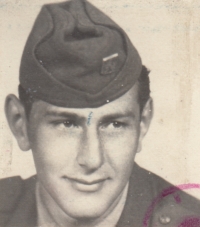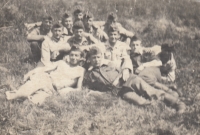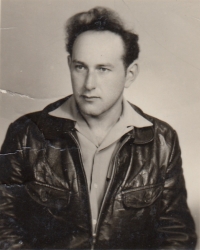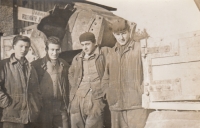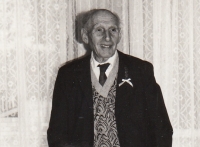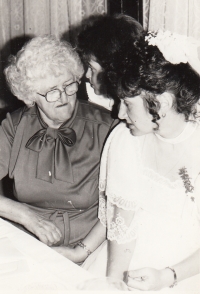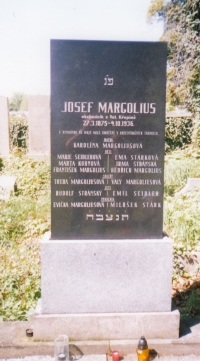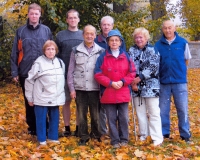My father gave me my life twice

Download image
Zdeněk Kalenský, né Kohn, was born on the 19th of October of 1935 in Nestánice in Southern Bohemia. His parents – Marta, née Margoliusová, and father Arnošt were from Czech Jewish families but they were not practising Jews. The Kohns ran a butcher’s shop in Nestánice. Due to the Nazi Anti-Jew laws, Zdeněk couldn’t start school. In April 1942, the Kohn family was transported to the Terezín ghetto. After a week, they continued to Poland, occupied by the Nazi Germany, to a forced labour camp in Kaweczyn. In miserable living conditions in what used to be a shed for drying bricks, he family spent their last weeks together. In June 1942, the witness’ parents learned about the planned transport of children and with the help of the Polish resistance, they managed to get Zdeněk out of the camp and move him to an elderly couple who lived in Polish countryside. In August 1942, the labour camp was closed down and Arnošt Kohn managed to escape. He visited his hiding son and then left for Bohemia. While Zdeněk survived the war with false papers with a Polish family, his father Arnošt was hiding at his relatives’ in a gamekeeper’s lodge in Jedlá near Ledeč nad Sázavou. After war, Zdeněk and his father returned to Nestanice. Of the wider Kohn family, they were the only two to survive. The witness apprenticed as a metalworker and locksmith in 1953. In the years 1954 – 1956, he spent his army service in the special guard unit of the Ministry of Interior whose job was, among other, to guard the Jáchymov forced labour camps. After leaving the army, he worked in the Motor company in Vodňany and at the Lipno dam construction. In 1959, he accepted the offer to become the Communist Party member and between 1960 – 1965, he worked in the Czechoslovak Union of Youth. From 1965 until retirement, he worked in a construction company. After the Soviet occupation in 1968 and particularly after forceful suppression of the protests in August 1969, he renounced his Party membership. In 2020, the witness lived in Týn nad Vltavou. After war, Zdeněk and his father returned to Nestanice. Of the wider Kohn family, they were the only two to survive. The witness apprenticed as a metalworker and locksmith in 1953. In the years 1954 – 1956, he spent his army service in the special guard unit of the Ministry of Interior whose job was, among other, to guard the Jáchymov forced labour camps. After leaving the army, he worked in the Motor company in Vodňany and at the Lipno dam construction. In 1959, he accepted the offer to become the Communist Party member and between 1960 – 1965, he worked in the Czechoslovak Union of Youth. From 1965 until retirement, he worked in a construction company. After the Soviet occupation in 1968 and particularly after forceful suppression of the protests in August 1969, he renounced his Party membership. In 2020, the witness lived in Týn nad Vltavou.
